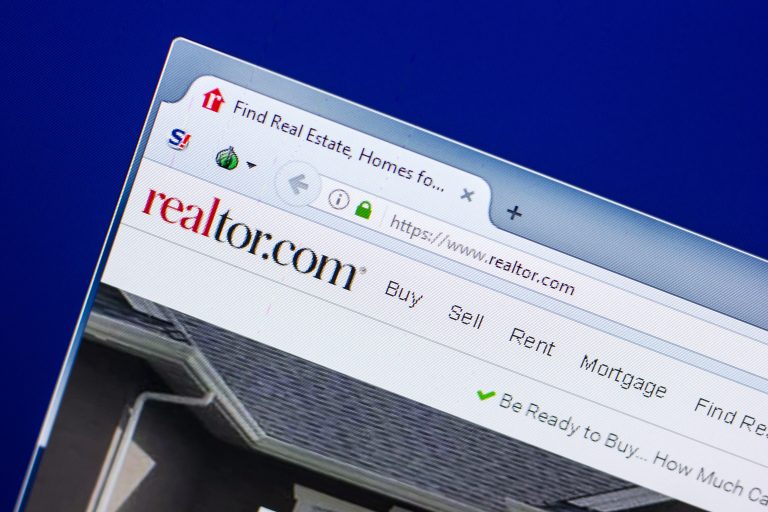Navigating Privacy Settings on Social Media Platforms
December 12, 2023Social media has become a ubiquitous aspect of daily life, making the management of privacy settings increasingly vital. This article…

The proliferation of real estate platforms in the digital age has introduced concerns about the exposure of personal data. While these platforms offer convenience and accessibility for property-related transactions, the substantial personal information they share raises significant risks. Users often provide sensitive details, including names, addresses, and even financial information, making them potential targets for identity theft and fraudulent activities.
Hackers can exploit vulnerabilities within these platforms to access personal data, leading to financial and emotional distress for victims. Moreover, personal data exposure can invade privacy as user information becomes accessible to a broad audience.
To mitigate these risks, individuals can employ strategic measures. Using pseudonyms or nicknames instead of real names to create accounts can protect identities and limit shared data. It’s crucial to exercise caution in divulging personal information and to avoid sharing sensitive data unless necessary. Using a virtual private network (VPN) can enhance internet connection security, and individuals should scrutinize third-party apps and regularly update privacy settings on real estate platforms.
These precautions are essential in an era of increasing cyber threats, ensuring that personal information remains safeguarded in real estate transactions.
As technology advances, the real estate industry has shifted towards online platforms for buying and selling properties. However, with this convenience comes the risk of personal data exposure.
Real estate platforms have gained immense popularity in the digital age, offering convenient solutions for property-related transactions such as listings and rental agreements. While these platforms provide ease of access and efficiency, they also come with concerns related to the exposure of personal data.
One of the primary concerns surrounding personal data exposure is the heightened risk of identity theft. Hackers can exploit vulnerabilities within these platforms to access sensitive personal information, including names, addresses, and social security numbers. This stolen data can then be used for nefarious purposes, such as opening credit cards or taking out loans in someone else’s name. Furthermore, personal data exposure can lead to fraudulent activities, including creating fake rental listings or phishing scams. Cybercriminals can use personal information to concoct deceptive listings or pose as legitimate landlords, deceiving unsuspecting renters and stealing their money. Additionally, sharing personal information on these platforms can result in privacy invasion. For instance, photographs of a person’s home or contact information can be accessed by anyone on the platform, potentially jeopardizing their safety and security.
Real estate platforms typically require users to provide personal contact information, including names, phone numbers, and email addresses, as part of the account creation or property owner contact process. Sometimes, these platforms may request financial information such as bank account numbers or credit card details for payment or verification purposes. Users also often share property-related information, such as property addresses and photos, when creating listings or searching for properties.
Several strategies can be employed to minimize personal data exposure on real estate platforms. Firstly, users can consider using pseudonyms or nicknames instead of real names when creating accounts. This approach helps protect their identities and limits the amount of personal information shared. It’s also essential for individuals to exercise caution regarding the extent of personal information they disclose on these platforms. Only essential information should be provided, and sensitive data, such as social security numbers or financial details, should be avoided whenever possible. Employing a virtual private network (VPN) can enhance internet connection security and safeguard data from potential hackers operating on real estate platforms. Users should also exercise vigilance when using third-party apps or services within these platforms, as they may have access to personal information and could potentially misuse it. Lastly, it’s important to regularly monitor and update privacy settings on real estate platforms to control who has access to personal information and limit exposure. These precautions collectively contribute to a safer and more secure environment where real estate professionals make transactions.
In real estate platforms, the exposure of personal data looms as a significant concern, giving rise to various potential risks, including identity theft, fraudulent activities, and unwarranted invasions of privacy. Such platforms necessitate sharing an array of personal information, spanning personal contact details, financial particulars, and property-related data, making it imperative for users to adopt proactive security measures to safeguard their data.
Personal contact information encompasses essential details like names, phone numbers, and email addresses, which are vital for user registration and property-related inquiries on these platforms. Sharing such information on these platforms can expose users to identity theft, wherein malicious actors could exploit this data to carry out unauthorized financial transactions or fraudulent activities in the user’s name. Additionally, this exposure may invade privacy as sensitive data and client information become accessible to a wide audience, potentially compromising the user’s safety and security.
Financial data, another facet of personal information exposed on real estate platforms, comprises sensitive details such as bank account numbers, credit card information, and income statements. This information is often required for payment or verification purposes. To mitigate the risk of sharing financial data, users should exercise caution by selecting secure payment gateways and refrain from sharing unnecessary personal and financial information with particulars. Regular monitoring of bank statements is also recommended to detect and promptly address any unusual or suspicious activity.
Property-related information shared on these platforms typically includes property addresses and photos. While essential for showcasing and searching for properties, this data can inadvertently reveal users’ locations or personal circumstances if not handled carefully. To address this concern, users can adopt strategies such as minimizing property details, employing more generic property descriptions, considering private listings that restrict access to property management only to verified parties, and regularly reviewing and updating privacy settings on the platform.
In today’s digital era, safeguarding personal data on online platforms, particularly during real estate and business transactions, is paramount. To achieve this, there are several key strategies individuals can employ.
Firstly, using a pseudonym or nickname when interacting on real estate platforms is an effective approach. Individuals can maintain their anonymity by creating a unique pseudonym and avoid sharing personal details in public profiles or conversations. Regularly updating privacy settings ensures continued protection.
Secondly, limiting the amount of personal information shared is crucial. Users should only provide the necessary information, use generic usernames, and avoid disclosing sensitive personal and financial data or contact details. This approach minimizes the risk of personal data exposure.
Thirdly, utilizing a Virtual Private Network (VPN) adds a layer of security to consumer data. VPNs encrypt internet traffic and protect data from potential hackers or eavesdroppers, particularly when accessing real estate platforms.
Fourthly, caution is advised when dealing with third-party apps and services. Users should research and choose trusted and reputable options while reviewing app permissions and security practices and regularly updating them.
Lastly, maintaining vigilance over privacy settings is vital. Regularly reviewing and adjusting these settings helps limit the visibility of personal information, enhances password protection, and ensures software is up to date.
By implementing these strategies, individuals can significantly reduce the exposure of their personal data on real estate platforms, bolstering their privacy and security in the real estate business.
Numerous extra resources are accessible to safeguard personal information on real estate platforms. These resources offer valuable knowledge and tools to ensure your privacy. Some examples include:
Furthermore, there are online forums and communities where users exchange tips and best practices for maintaining data privacy on real estate platforms. Utilizing these resources can strengthen your data protection measures while utilizing real estate platforms.
When minimizing personal data exposure on real estate platforms, it is important to take some precautionary measures. Here are a few strategies to consider:

Social media has become a ubiquitous aspect of daily life, making the management of privacy settings increasingly vital. This article…

Facebook, with its 2.85 billion users, is a major player in the digital world. Despite its popularity, concerns about data…

Removing personal data from mobile devices is vital for privacy and security. Smartphones and tablets store extensive personal information; this…